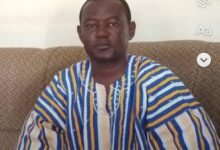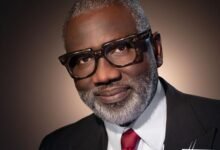CAN GHANA AND SOUTH AFRICA HELP TO UNRAVEL THE SECRETS BEHIND DAG HAMMARSKOELD’S DEATH?
Ii was heart-warming to see, on 5 December 2019, the Presidents of Ghana and South Africa exchanging ideas on how to take forward, the excellent relations that the two countries have built up since 1994.
Mr Ramaphosa will take over the chairmanship of the African Union (AU) at the beginning of 2010. South Africa is also a non-permanent member of the UN Security Council, having been elected to that important body by the General Assembly in June 2019. This is the third time South Africa has been elected to this seat at the UN. The question is: what will South Africa do with it?
It is my fervent hope that South Africa will, in concert with sister countries like Ghana, help the UN finally to unravel perhaps the most mind-blowing mystery of the 20th Century, namely, the suspected murder, in September 1961, of the then United Nations Secretary-General, Mr Dag Hammarskjoeld.
It might be asked: Why not let the matter rest? The answer is that it wasn’t Hammarskjoeld as a person who was killed. Hammarskjoeld was the elected head of the United Nations Organisation – a body specifically created by the nations of the world, to avoid the horrors of future wars. (The Second World War had disgusted even the most blood-thirsty of human beings, having resulted in the deaths of over 20 million people.)
So, when, on the night of 18 September 1961, the world heard that the man who represented the world’s hope for a new peaceful future had died violently suspicions were aroused immediately, especially as Hammarskjoeld was travelling to try and resolve one of the most intractable problems of the post-war world – the struggle of the Congolese people to retain control of their resources.
The Belgians had ostensibly given “independence” by their former brutal coloniser, Belgium. But this independence threatened the future of racist, colonial regimes in the whole of South-central Africa. There was, for instance, the Federation of Rhodesia and Nyasaland (controlled by Britain through a white “settler” government.) Then there was South Africa (ruled with an iron hand by white racists under the system of apartheid). Next, were the Portuguese colonies of Angola, Mozambique and Guinea-Bissau – all a source of great wealth to Portugal (just as a great part of Belgium’s national wealth came from its “joint-ownership” of Western companies that mined uranium, diamonds, copper and other minerals in the Congo.
So the Congo’s “independence” was deliberately sabotaged by Belgium, with the active collaboration of its “allies” in the North Atlantic Treaty Organisation (NATO) – the United States, Great Britain, France and Portugal.
These countries had, through intrigues, managed to depose the elected Prime Minister of the Congo, Patrice Lumumba, and kill him. Their instrument for doing this was a man called Moise Tshombe, whom they had encouraged to establish a “secessionist regime” in one of the Congo’s provinces, Katanga. (The United Nations had sent troops to the Congo to help Lumumba’s Central Government to re-establish control over the whole country. But the Belgians and their NATO allies were helping Tshombe to resist the UN’s efforts with armed force).
Appalled by the failure of the UN to achieve peace in the Congo, the UN Secretary-General (Dag Hammarskjoeld), decided to engage in “personal diplomacy” to save the situation. He decided to go and see Moise Tshombe, personally — despite the odium that such a meeting would create against him among the countries of the Eastern bloc and the Non-Aligned Nations.
But he was betrayed, most probably by the very Western countries from who he had come under pressure to settle with Tshombe. His plane never made it to Lusaka, the Northern Rhodesian capital, where Britain had somehow organised a meeting between for Hammarskjoeld with Tshombe. Hammarskjoeld and fifteen other people on his plane were killed.
Now, as Hammarskjold was the personification of the hope of humankind for peace and security, it would have been thought that his putative assassins would be found quickly and punished. After all, the most powerful countries in the world — especially the United States and the Union of Soviet Socialist Republics — were both known to possess awesome information-gathering capabilities. They routinely intercepted encrypted communications between nations and their embassies, for instance. And they could tap all electronic communications on the globe — through satellites stationed above the earth.
But although fifty-eight years have passed since the tragic death of Hammarskjold, we are no nearer to finding out the truth about what happened, than the world was, more than half a century ago. Speculation upon speculation has been applied to the mechanics of the so-called “accident.” But all the nations capable of satisfying the world’s curiosity have kept mum.
Now, who are these conscienceless “hoarders” of “state secrets”, who, by covering up the facts, convict themselves of “guilt” in a conspiracy of silence? A former Tanzanian Chief Justice, Mr Mohamed Chande Othman, was appointed in 2016 to pursue facts which the UN’s initial investigations in 1962 and afterwards had failed to unearth. (The 1962 investigation concluded that a final verdict could not be reached as to whether the crash was “the result of an aerial attack, or an accident.” The case was therefore “closed, pending new revelations”.
Mr Justice Chande Othman’s final report in 2019 notes that he had, back in 2017, reported that “it was plausible that an external attack or threat was a cause of the [Hammarskjold] crash and that the burden of proof had shifted to Member States to show that they had conducted a full review of records and archives in their custody or possession”.
This is where Ghana and South African should come in. Ghana’s President of the time, Dr Kwame Nkrumah, was very well informed about world affairs. (For instance, he told Ghanaians of Lumumba’s murder, before the murder was confirmed.)
The apartheid regime of South Africa was also well informed about everything that went on in the Congo, South Africa being an unabashed base of recruitment for many white “mercenaries” who were fighting for Tshombe and other warlords.
The former Tanzanian Chief Justice says South Africa made an appointment in May 2019, to assist him in tracing information. But none had been received”.
As could be expected, neither the United Kingdom nor the United States of America, had been forthcoming with the information he had asked for, the judge said. The Russian Federation has also told the Judge that it had “performed searches” but had found nothing.
I think Ghana and South Africa should assume the moral leadership of the world and shame all these countries which are withholding information from the UN investigator, by publishing what they can unearth from their own files. If they did this, they would be making any future conspirators aware that those who plan to harm the UN ideal, know for certain, that they would never be allowed to hide forever.
By CAMERON DUODU





